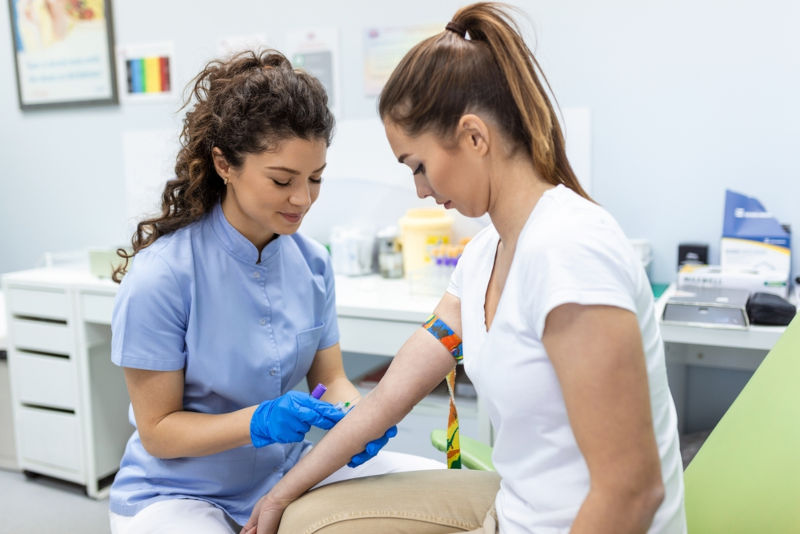
Nursing students entering the clinical portion of nursing school may be excited and have questions about what to expect during the required field experiences of their program. Clinical rotations allow nursing students to engage in real-world patient care while practicing hands-on clinical skills in a supervised, supportive learning environment.
This blog aims to answer several common questions about clinical rotations for nursing students and promote the confidence you need to succeed in the clinical setting. Each nursing curriculum includes practical teaching strategies for preparing graduates to work directly with patients. How many clinical hours for nursing school depends on these teaching strategies, accreditation guidelines, and state-specific licensing regulations.
Let’s explore the answers to seven common questions about clinical hours for nursing school, starting with an overview of clinical rotations, the required number of hours, and additional clinical placement details.
1. What are clinical nursing rotations?
Clinical rotations are supervised nursing practice experiences in settings such as hospitals, outpatient clinics, community health centers, and other population-specific agencies where students are immersed in direct patient care. Students work under the guidance and supervision of a Registered Nurse (RN) clinical instructor in collaboration with experienced nursing faculty to observe and hone critical thinking and hands-on skills.
Some examples of nursing you will practice and apply during clinical rotations include:
- Professional communication
- Patient assessments
- Medication administration
- Interdisciplinary teamwork
- Assistive technology
- Time management
Nursing clinical rotations may be the first experience you have working directly with patients and families, and you will gain comfort in this professional role through practice and experience.
2. How many clinical hours are required?
The American Association of Colleges of Nursing (AACN) has outlined the curricular content needed for quality, professional nursing education in the AACN Essentials. For entry-level nursing programs, there is no established minimum number of clinical hours required for inclusion. However, nursing licensure regulations may mandate specific types of experiences and/or the number of required practice hours. These regulations are considered along with accreditation standards to design the Bachelor of Science in Nursing (BSN) curriculum.
3. How should I prepare for nursing clinicals?
Preparation for nursing clinicals comes in many forms. You might consider reviewing notes from your nursing classes and refreshing your memory on fundamental nursing skills so you are ready to begin applying the knowledge in a real-world setting. Your time as a student will go by quickly, so ask questions and volunteer to observe or complete nursing tasks when opportunities arise.
Consider these additional ways you can prepare for nursing clinicals:
- Get plenty of rest
- Wear your assigned uniform and comfortable footwear
- Organize your nursing supplies
- Know the route to your clinical facility
- Set aside time to reflect
Pay attention to the improvements in your nursing skills and comfort level as your clinical experience builds toward graduation. Expect to learn and grow, and celebrate moments of progress with your fellow student colleagues.
4. Will I be In one work environment or many?
The type of program and nursing curriculum determines the length of each clinical arrangement and the unique work settings you will experience. Some rotations continue for a few weeks before transitioning to a different facility or patient specialty population, while other clinical rotations may span one or more semesters.
BSN programs include rotations in the following settings:
- Medical-Surgical
- Pediatrics
- Perinatal
- Community Health
Nursing school will typically expose you to a variety of patient populations and work settings, although you may stay in the same work environment for a longer clinical rotation. As you progress through your clinical experiences, you may discover the types of nursing that most align with your passions and interests for a more fulfilling career path.
5. What tasks will I perform during nursing clinicals?
Nurses complete many tasks in their day-to-day routines. As a student, you will be learning and practicing the job responsibilities of a nurse in a supervised role. Specific tasks you can expect to perform may vary with the needs of each patient, but examples include:
- Taking vital signs
- Assisting with activities of daily living (ADLs)
- Completing wound care
- Preparing patients for diagnostic testing
- Responding to alarms
- Helping with discharge planning
- Educating patients
As a nursing student in clinicals, you will also use technology for documentation and practice infection control and safety awareness with all patients. Nurses are called to the highest ethical standards of care, and you will have chances to provide emotional support and advocacy as patients make important decisions about their care plans.
Thinking through this list of nursing tasks may help determine if nursing is right for you. There are many skills learned in non-nursing fields that translate well into nursing, and practice will help you hone the unique ways you can contribute to this meaningful, respected profession.
6. What is a preceptor, and what can I expect when working with them?
A preceptor is a professional nurse who will directly supervise your nursing clinicals and help guide you with practical advice for success. Preceptors demonstrate evidence-based practice and may share their journeys toward nursing competency to motivate and encourage students and newer nurses alike in lifelong learning.
When working with a preceptor, you can expect a role model and inspiration for your future nursing career. Preceptors facilitate your learning and advocate for opportunities to observe and practice skills. They will also offer constructive feedback and work with your university faculty to provide input into your nursing performance evaluations.
Some nursing programs include clinical rotations under the direct supervision of a clinical faculty member rather than a preceptor. In this learning arrangement, the clinical faculty member guides a cohort of students (a clinical group) through a clinical rotation. The clinical faculty will typically work individually and collectively with students.
7. How will I be evaluated during nursing school?
Nursing school is a progressive learning journey, and evaluation during nursing school follows a similar expectation. As you move through your didactic classes and into your clinical rotations, you can expect your nursing faculty to evaluate your progress and growth with specific competency exams and milestones along the way.
Student clinical competency may be evaluated during each clinical rotation, with the opportunity to remediate performance and strategically set learning goals. Before and after each clinical day, students may have conference time with their clinical faculty to discuss and debrief on case studies and patient interactions. Faculty work to help students prepare for the NCLEX examination and develop strong clinical judgment for safety and excellence in professional nursing practice.
Accelerated Bachelor of Science in Nursing (ABSN) programs are a fast track for aspiring nurses with an earned Bachelor’s degree in another field. One of the significant benefits of an accelerated nursing program is the ability to leverage prior education so you can efficiently transition into the nursing field.
Become a BSN-Prepared Nurse at Holy Family University
You can become a nurse in less time by completing the online ABSN program at Holy Family University. The rigorous and rewarding program is more affordable than local programs, with only five prerequisite courses required before enrollment, saving you additional time and money. Other program features include:
- 100% online coursework
- One in-person residency
- High NCLEX pass rates
- Clinical placement support included
Get started now by visiting Holy Family’s Second Degree Distance Hybrid BSN program page where you can connect with an enrollment advisor and download your digital guide today.

